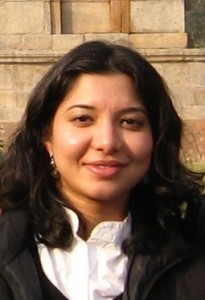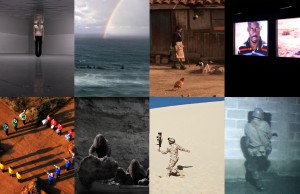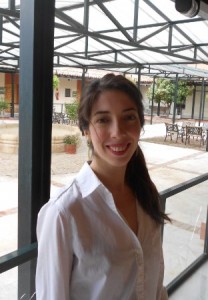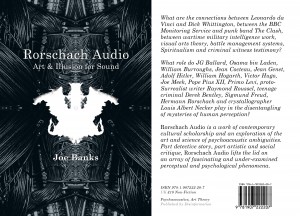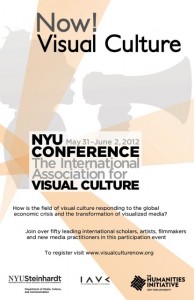News

We’re excited to announce that Thomson and Craighead been shortlisted for this year’s Jarman Award amid a fantastic group of artists. You can find more info on the shortlist here: http://flamin.filmlondon.org.uk/projects/projectscurrent/jarmanaward/jarman_award_12
In other news, Thomson and Craighead are premiering their series of karaoke videos as part of the Film & Video Umbrella exhibition, ‘Our Mutual Friends’ launching online and for an event at Jerwood Space, London on 30th August 2012. The videos take a fresh look at unsolicited spam emails and their affinities with notions of romanticism and realism. You can view online versions of the videos here: http://www.youtube.com/user/songsofinnocence100
The duo have also been commissioned to make a new installation for this year’s Brighton Photo-biennial: a documentary artwork that looks at the burgeoning Occupy movement and its explosion worldwide during October 2011. The recent documentary artwork, ‘Belief’ is streaming online as a single screen work at Animate Projects alongside an interview and an essay by Morgan Quaintance. Finally, ‘The Time Machine in alphabetical order’ is showing as part of ‘Trans Adriatic Grey Area’ exhibition at LAMPO in Italy. The exhibition is curated by Darko Fritz for Lampo Net & Contemporary art Exhibition, D’Annunzio Room, Aurum, Pescara from August 25th – September 24th 2012.
#Citizencurators: collaboration with Museum of London
Tagged as archive, London, museums, technology

#Citizencurators is a history project that will record the experience of Londoners during the Olympic fortnight. Created for the Museum of London, #Citizencurators will collect tweets, moments and images using social networking to tell the story of everyday life in the capital. Directed by the IMCC’s Peter Ride and the Museum of London’s Hilary Young, with a project team made up of students from the MA Museums, Galleries and Contemporary Culture at Westminster, the aim is to investigate how new media/ social networking can provide alternative approaches to supplement contemporary collecting. As action research project, it is also designed to result in knowledge that can assist the Museum in the collection and management of ‘born digital’ material.
#Citizencurators explores what it is like to live in London during the Olympic fortnight (27 July – 12 August). The established narrative of the Olympics is focused on the experience of the athletes, participants, employees and tourists. However a larger part of the Olympic experience in London is not being articulated. This is the daily experience residents whose lives are inevitably caught up in the Olympics but who are ‘bystanders’. What will the Olympics mean to the single mum with a young family in Stratford, the work commuter who uses the Jubilee line, the resident in an apartment block partially occupied by the army, the young club-goer intending to enjoy a summer of fun, the foreign student or to the Starbucks barista? Will the Olympic experience unfold as community-strengthening activity or a headache of disruptions and an overflow of tourists?
To take part, simply tweet like you normally do and use the #citizencurators hashtag. Ultimately by following typical tweeters the team want to collect streams that document peoples’ lives in London during the Games in a way that reflects the normal use of social media, not something out of the ordinary.
For further details, see: http://citizencurators.com/

Two very interesting panel discussions taking place this week, as part of the Design Diplomacy series associated with the International Architecture and Design Showcase in Westminster’s P3 gallery at Marylebone.
Expanded Territories
Thursday 5th July, 2.00–4.00pm
This colloquium invites the audience to engage in a gallery talk and dialogue with participants of the Ambika P3 International Architecture and Design Showcase around questions of architecture’s role in (de)colonization, social (re)construction, national identity formation, human development and global (dis)integration in their countries. Participants include: Phillip Luell, Zahira Asmal, Bryan Bullen, John Allsop and Kevin Talma
Post-Colonial Legacies: South Africa and Namibia
Friday 6th July, 6.00–8.00pm
This panel discussion will exchange knowledge, ideas and experience about the agency of design (urban, architectural, industrial, fashion, graphic) in transforming life in cities in Namibia and South Africa since the end of apartheid. These will include questions of design’s agency in overcoming socio-spatial legacies of the past; design’s complicity in the recolonisation of cities by neo-liberal and market forces; the impact of mega events on host cities and priorities for design education to meet contemporary challenges. Panelists include: Marion Wallace, Guilermo Delgado, Diana Mitlin, Zahira Asmal, Yvette Gresle, Lesley Lokko and Philip Luehl.
For further details go to: http://designdiplomacy.blogspot.co.uk/
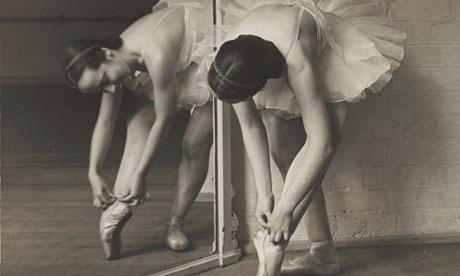
A chance to listen to our own Anne Witchard on BBC Radio 4’s popular history programme Making History in which listener’s questions and research help offer new insights into the past. Anne talks to Tom Holland about how the Victorians disapproved of the ballet, how some artists and poets became infatuated with it, and how London street-dancing may well have influenced the Parisian ‘Can-Can’. First broadcast on June 12 2012. Listen to the podcast here.
It’s with pleasure that we welcome our new Junior Visiting Research Fellow, Yuthika Sharma, who will be hosted by the Institute from 25th June until 25th October 2012. Yuthika is finishing her PhD on the visual culture of Mughal and British Delhi, India between 1750-1857, at the Department of Art History and Archaeology, Columbia University, New York. She is co-curator and co-editor, with William Dalrymple, of Princes and Painters in Mughal Delhi, 1707-1857 Asia Society, New York, February 6 -May 7, 2012 (Yale University Press, 2012). While resident at the Institute, Yuthika is writing about the historical transition from painting into photography in Victorian Delhi, and on contemporary ‘Mughal’ paintings by marginalized artist guilds in present-day north India.
Open Call: Delfina Foundation, Videobrasil and Casa Tomada
Tagged as art, Brazil, cinema, visual culture
Our friends at the Associação Cultural Videobrasil in partnership with Delfina Foundation and Casa Tomada (São Paulo, Brazil) are pleased to invite applications from visual artists living and working in Brazil and the Middle East, North Africa & South Asia (MENASA) for a three-month artistic residency split between São Paulo and London. The Videobrasil em Contexto Prize (Videobrasil in Context) is focused on artists, under the age of 35, whose practice involves a strong element of research and production. Two artists (one from Brazil and another from MENASA) will be selected to undertake the three-month residencies from mid-September 2012 and produce a new works in response to Videobrasil’s Collection.
The Collection available for each artist are the works that have been part of the Southern Panoramas show each year since 1990, when Videobrasil focused on the geopolitical South. An overview of this 20+ year selection is available for the applicants at: www.videobrasil.org.br/vbonline During the residencies, various public platforms will be created for the artists in São Paulo and London. At the end of the residency, the artists will be asked to prepare a presentation of their projects to be part of the activities of the 30th Anniversary of the International Contemporary Art Festival SESC_Videobrasil in October 2013.
– Deadline for applications: 8th June 2012
– Artists shortlisted: June 15th, 2012
– Interviews with shortlisted artists through Skype: June 20th to July 22nd, 2012
– Announcement of Selection: 2nd July, 2012
– Program Length: September 17th – December 29th, 2012
[São Paulo: September 17th – October 29th, 2012; London: October 29th – December 17th, 2012]
For more information on the programme and selection process, please download an application form here in English.
Hosted by NYU, the International Association for Visual Culture’s biennial conference will take place later this week (Thursday May 31st – Saturday June 2nd). Contributors include:
Dena Al-Abeeb, Safet Ahmeti, Katherine Behar, Wafaa Bilal, Maxime Boidy, Shane Brennan, Giuliana Bruno, Lisa Cartwright, Jill Casid, Dean Chan, Alexandra Chang, Patty Chang, Hazel Clark, Wendy Hui Kyong Chun, Beth Coleman, David Darts, Craig Dietrich, Ellen Esrock, Jessica Freedman, GB Tran, Bernard Dionysius Geoghegan, Jennifer Gonzalez, Jaleen Grove, Elizabeth Guffey, Raiford Guins, Gary Hall, Natalie Jeremijenko, Alexandra Juhasz, Elizabeth Koslov, Max Liljefors, Mark Little, Kevin Matz, Meerkat Media Collective, Keith Miller, Nicholas Mirzoeff, W.J.T. Mitchell, Naeem Mohaiemen, Stephen Monteiro, Tara McPherson, Sina Najafi, Lisa Nakamura, Amy Ogata, the OWS Student Debt Campaign, Trevor Paglen, Amanda du Preez, Martha Rosler, Joan A. Saab, Marquard Smith, Landon van Soest, Marita Sturken, Francesca Martinez Tagliavia, Thomas Tsang, Magda Szczensniak, Diana Taylor, Oyvind Vagnes, Carlin Wing, Jason Wing, McKenzie Walk, and Joanna Zylinska.
Further details on the conference are available here: http://www.visualculturenow.org/
The International Association for Visual Culture (IAVC) means to foster communication and exchange among individuals and institutions engaged in critical analyses of and interventions in visual culture. For details of the IAVC, visit its website: http://iavc.org.uk/
For forthcoming news, including information on Membership, please find the Association on Facebook and follow it on Twitter: http://iavc.org.uk/contact Thanks.
The Institute would very much like to welcome Vanesa Rodriguez Galindo as its new Junior Visiting Research Fellow.
Vanesa, who will be hosted by the Institute for three months, is currently completing her PhD at the Department of History of Art at UNED, Madrid. Her dissertation, ‘Retracing the City’s Steps: Constructing modernity, the urban gaze and public space in late nineteenth-century Madrid,’ examines perceptions of urban modernization as recorded in visual culture. By exploring the intersection between the tropes of costumbrismo, popular imagery, and the modernizing project, her research hopes to demonstrate that everyday experience of the city was not assimilated through the strict binary categories customarily associated to nineteenth-century Madrid – tradition and renewal, public and private, high and low culture – but was in fact fluid and mobile, generating a far more interesting and complex interplay of influences.
Thomson & Craighead’s Belief
Tagged as art, thomson, visual culture

Thomson and Craighead are premiering their new documentary artwork, ‘Belief’ as part of the Edinburgh Film Festival. It’s the final work in the Flat Earth Trilogy following on from Flat Earth (2007) and A short film about War (2009/2010), and will be shown at Inspace, Edinburgh from 21st June – 1st July 2012. e-flyer: http://www.thomson-craighead.net/belief
In other news, Thomson and Craighead have donated a print for an Animate Projects fundraiser aiming to help keep the brilliant Animate Projects archive online. So if you fancy donating to the cause and walking away with an artists’ print, then do go along on Wednesday 13 June, 6.30-8.30pm, Berners House, 47-48 Berners Street, London. Email: tarnia@animateprojects.org for more information about this.
Finally, work by Thomason and Craighead is also appearing in two group shows: ‘Image Counter Image’ at the Haus der Kunst, Munich, 10th June 2012 – 16th September 2012; and ‘Gateways: Art & Networked Culture’, Haus für elektronische Künste, Basel, 2nd June 2012 – 19th August 2012.
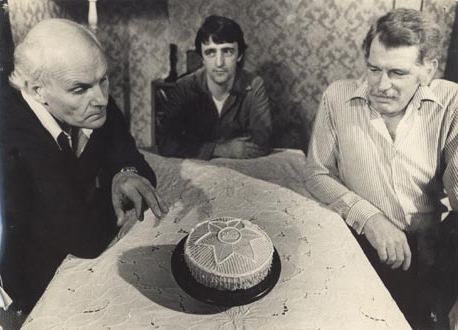
Soho Poly Theatre Festival
40th anniversary celebrations
19-21 June, 2012
2012 marks 40 years since The Soho Poly Theatre (now Soho Theatre) moved into a tiny basement on Riding House Street and established itself as one of the most famous fringe venues of the 1970s and 80s. It was the home of innovative new writing, and a launch pad for many actors and directors still at work today. Under the early directorship of Fred Proud and Verity Bargate, the theatre inspired incredible devotion amongst those it worked with. It was also a pioneer of ‘lunchtime’ theatre, an innovation which liberated writers to experiment with new forms of dramatic writing. From 19-21 June, the theatre will be coming back to life for a series of short plays, readings and panel discussions about theatre then and now.
Tuesday 19 June, 7pm: Fred Proud, the Soho Poly Theatre’s first artistic director, will introduce the festival, followed by a reading of Robert Holman’s short play ‘Coal’.
Wednesday 20 June: The festival hosts The Miniaturists, who will present three twenty minute plays at 1pm and again at 7pm. There will also be a panel discussion on innovative theatrical forms with representatives from the current Soho Theatre, time TBC.
Thursday 21 June, 1-2pm: ‘Theatre Then and Now’ – a lunchtime conversation with Michael Billington, Michael Coveney and Irving Wardle.
Thursday 21 June, 7pm: An evening reading of David Edgar’s play ‘Baby Love’, followed by a drinks reception in a nearby venue, TBC.
Unless otherwise mentioned, all events will take place in situ in the original basement at 16 Riding House Street: http://g.co/maps/uev2w
Please email festival organiser Matthew Morrison at matt.morrison77@gmail.com for any further information about the individuals and companies involved, interviews and photos. Tickets are free, but because of the size of the venue, availability is limited. Please email sohopolyfestival@gmail.com for all reservations, mentioning which events you are interested in attending. You can also follow the festival on our blog http://sohopolyfestival.blogspot.co.uk/ and Twitter @SohoPolyFest.
“Rorschach Audio – Art & Illusion for Sound” by Joe Banks – “The earliest form of sound recording technology was not a machine but was written language…” (page 96)
What are the connections between Leonardo da Vinci and Dick Whittington, between the BBC Monitoring Service and punk band The Clash, between wartime military intelligence work, visual arts theory, battle management systems, Spiritualism, radio and recording technology and criminal witness testimony? What role do JG Ballard, Osama bin Laden, William Burroughs, Jean Cocteau, Jean Genet, Adolf Hitler, William Hogarth, Victor Hugo, Joe Meek, Pope Pius XII, Primo Levi, proto-Surrealist writer Raymond Roussel, teenage criminal Derek Bentley, Sigmund Freud and crystallographer Louis Albert Necker play in the disentangling of mysteries of human perception?
“Rorschach Audio” is a work of contemporary cultural scholarship and an exploration of the art and science of psychoacoustic ambiguities. Part detective story, part artistic and cultural critique, “Rorschach Audio” lifts the lid on an array of fascinating and under-examined perceptual and political phenomena.
“Rorschach Audio” is essential reading for everyone interested in air-traffic control, anechoic chambers, artificial oxygen carriers, audio art, bell-ringing, cocktail parties, cognitive science, communications interference, compost, the death penalty, Electronic Voice Phenomena, evolutionary biology, experimental music, ghosts, the historiography of art, illusions of sound and illusions of language, lip-reading jokes, nuclear blast craters, predictive texting, singing hair, sonic archives, sound design, steam trains, tinnitus, the Turing Test, Victorian blood painting, visual depth and space perception, ultrasonic visual music, ventriloquism, voices and warehouse fires and robberies.
Trade distribution by Turnaround
Production by Strange Attractor
Published by Disinformation
ISBN 978-1-907222-20-7
Hardback, 191 pages
UK £10 Non-Fiction
Psychoacoustics, Art Theory
RELEASE DATE MONDAY 21st MAY 2012
Thomas Y Levin seminar at the IMCC, Weds 6 June
Tagged as image, surveillance, technology, visual culture

Wednesday 6th June 2012, 4pm
Room 358, University of Westminster, 309 Regent Street, London W1B 2UW
Professor Thomas Y. Levin
Princeton University / IKKM Bauhaus University, Weimar
“Ghostly Surveillance: Some Stabs in the Ciné-Narratological Dark”
Simultaneous with the increasingly widespread use of surveillance as a narrative device in contemporary cinema – its most obvious manifestation being the rise of so-called “real-time” transmission characteristic of CCTV systems in films such as The Truman Show — we are also witnessing a curious proliferation of ghosts within the surveillant machinery, from disturbing videocasettes desposited mysteriously on doorsteps (Lost Highway, Caché) to the re-appearance of people who are supposedly dead on the screens of corporate security systems (Michael Almereyda’s Hamlet [2000]) and the documentation of the presence of demons by means of home surveillance cameras (Paranormal Activity). While it could be argued that at least since Bentham, there has always been a ghostly dimension to surveillance (the panoptic tower functions despite the complete inability to determine whether anyone is actually really inside), what might these ghostly apparitions reveal about the assumptions we make about surveillance images, indeed about cinema as such?
Thomas Y. Levin teaches media theory and history, cultural theory, intellectual history, and aesthetics. His essays have appeared in October, Grey Room, New German Critique, Screen, The Yale Journal of Criticism, and Texte zur Kunst. He translated and edited the critical edition of Siegfried Kracauer’s The Mass Ornament: Weimar Essays (1995). He was part of the curatorial collective responsible for the first exhibition on the Situationist International at the Centre Pompidou, ICA London and the ICA Boston in 1989. Levin also conceived and curated the exhibition CTRL [SPACE], Rhetorics of Surveillance from Bentham to Big Brother which opened at at the ZKM Center for Art and Media Technology in Karlsruhe in October 2001 and edited the catalogue under the same title (with Ursula Frohne and Peter Weibel). His more recent curatorial activities include Anxious Omniscience: Surveillance and Contemporary Cultural Practice (Princeton University Art Museum, 2002), 911+1: The Perplexities of Security (Watson Institute, Brown University, 2002) and The Arts of the Future will be Radical Transformations of Situations, or They will be Nothing’: Guy Debord Cineaste (Slought Foundation, Philadelphia, 2006).
Following on from the pleasures of the 2010 Visual Culture Studies conference organized by the Institute for Modern and Contemporary Culture and hosted at University of Westminster, London, the International Association for Visual Culture’s first biennial conference will be taking place at New York University from May 31st – June 2nd.
Contributors include:
Dena Al-Abeeb, Safet Ahmeti, Katherine Behar, Wafaa Bilal, Maxime Boidy, Shane Brennan, Giuliana Bruno, Lisa Cartwright, Jill Casid, Dean Chan, Alexandra Chang, Patty Chang, Hazel Clark, Wendy Hui Kyong Chun, Beth Coleman, David Darts, Craig Dietrich, Ellen Esrock, Jessica Freedman, GB Tran, Bernard Dionysius Geoghegan, Jennifer Gonzalez, Jaleen Grove, Elizabeth Guffey, Raiford Guins, Gary Hall, Natalie Jeremijenko, Alexandra Juhasz, Elizabeth Koslov, Max Liljefors, Mark Little, Kevin Matz, Meerkat Media Collective, Keith Miller, Nicholas Mirzoeff, W.J.T. Mitchell, Naeem Mohaiemen, Stephen Monteiro, Tara McPherson, Sina Najafi, Lisa Nakamura, Amy Ogata, the OWS Student Debt Campaign, Trevor Paglen, Amanda du Preez, Martha Rosler, Joan A. Saab, Marquard Smith, Landon van Soest, Marita Sturken, Francesca Martinez Tagliavia, Thomas Tsang, Magda Szczensniak, Diana Taylor, Oyvind Vagnes, Carlin Wing, Jason Wing, McKenzie Walk, and Joanna Zylinska.
So it should be pretty decent.
You can find out more information on the conference here:
Social Sciences Humanities and Languages Studentships
The School of Social Sciences, Humanities and Languages at the University of Westminster is pleased to offer three research studentships for prospective PhD students from September 2012 for three years.
The Studentships are for full-time study in any of the School’s six Departments and include a fee waiver (Home/EU rate), plus a £5000 maintenance grant per year, for a maximum of three years. Please note that only Home/EU students are eligible to apply.
As part of the scholarship terms successful candidates will be required to contribute to teaching and research activities (up to 60 hrs per year), for which mentoring and development support will be provided.
Deadline for applications is 5pm on Friday 1 June 2012.
If your are applying for the English, Linguistics and Cultural Studies research area, your application will also be considered for the English, Linguistics and Cultural Studies Studentship and you do not have to submit two separate applications.
English, Lingusitics and Cultural Studies Bursaries
The Department of English, Linguistics and Cultural Studies at the University of Westminster is pleased to offer three bursaries for prospective PhD students.
Applications are invited for awards which are tenable for up to three years for full-time study (pro-rata both in amount and length for part-time students). Please note that only home/EU students are eligible to apply
English Literature after 1800
Areas of staff expertise include: the literature and culture of the nineteenth century, the gothic, modernism, the avant-garde, Scottish writing, modern poetry, life writing, contemporary fiction, critical theory, aesthetics, the literature of London.
Museums and Galleries in the 21st century
To consolidate the postgraduate community of our MA Museums, Galleries, and Contemporary Culture, taught in partnership with Tate and Museum of London, the department would welcome prospective PhD students with a particular interest in developing projects on audiences, digital culture, and curating.
Based in the heart of London, the department has an active research culture which includes regular seminars and conferences, and a lively research student community. In addition to this, staff and PG students are part of the University’s Institute for Modern and Contemporary Culture.
For further information please contact:
Dr Leigh Wilson, PhD Coordinator
Department of English, Linguistics and Cultural Studies
32-38 Wells St, London W1T 3UW
T: +44 (0)20 7 911 5000 Ext 2365
E: wilsonl@westminster.ac.uk
Deadline for applications is 5pm on Friday 1 June 2012.
Please note that your application will also be considered for the SSHL Studentship and they you do not have to submit two separate applications.

A great article on the BBC website about Alexa Wright’s A View for Inside. Here’s a snippet: `A View From Inside’ is an exploration of some alternative perspectives on reality. Her thought provoking portraits offer a window into the unique realities experienced by Theresa and nine other people who have been affected by a psychotic `disorder’ such as bipolar or schizophrenia. Alexa Wright’s aim is two fold. “One is bringing issues of mental health into the public domain, she said. ‘But the other is to look at our notion of reality. What is reality, we all operate in society on the basis that what we consider real is the same as what someone else might. But it’s interesting to look at a reality that only one person is privy to but for them is absolutely real when they are experiencing it.’
Read the full article here: http://www.bbc.co.uk/news/health-17618459
Alan Morrison Royal Society lecture, April 27
Tagged as education, London, technology
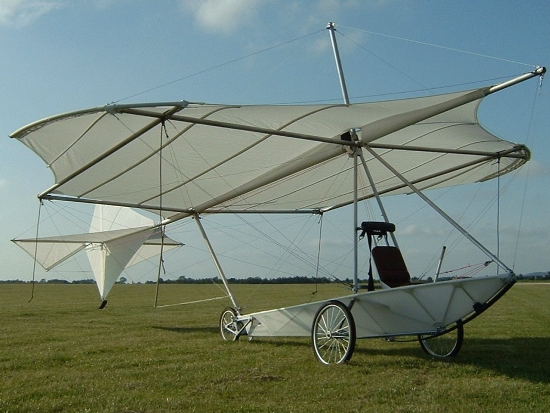
Sir George Cayley (1773-1857), the Father of Flight
Friday 27th April, 1.00-.200 pm
The Royal Society, Carlton House Terrace, 6-9 Carlton House Terrace, London SW1Y 5AG
This Royal Society lecture discusses Cayley’s pioneering aviation work, and his roles as an inventor and as founder of the Royal Polytechnic Institution in Regent Street. Cayley’s work will be related to the scientific and intellectual milieu of the day, and to debates regarding the public engagement with science and technology. The lecture will be delivered by Alan Morrison, who is an Honorary Fellow in the IMCC at the University of Westminster, as well as a Lemelson Center Research Associate at the Smithsonian’s National Museum of American History. He curated the exhibition ‘Sir George Cayley: the Father of Flight’ shown at the RAF Museum Hendon.
The lecture is open and free to the public – there is no need to book, and seats are allocated on a first-come, first-served basis.
Exhibiting Video – 23-25 March, University of Westminster
Tagged as art, cinema, technology, visual culture

The Institute’s friends and colleagues in the Centre for Research and Education in Arts and Media (CREAM) at University of Westminster are organizing a three-day international conference this coming weekend on ‘exhibiting video’, please see below for full details:
Exhibiting Video – International Conference
Date: 23, 24 and 25 March, 2012
Venue: University of Westminster, 309 Regent Street, London, W1B 2UW
To coincide with the new David Hall Ambika P3 commission ‘1001 TV Sets (End Piece)’ 1972-2012 the Centre for Research and Education in Arts and Media (CREAM) of the University of Westminster is convening Exhibiting Video, a three-day event considering issues central to the display of video art. Bringing together notable artists, curators and writers the event will provide a forum for a number of related questions:
· On what terms has the rise of video in contemporary arts taken place?
· How do notions of medium specificity and site specificity shape video art work made for exhibition?
· What is the legacy of analogue video technology in the digital age?
· How do our museums and galleries understand video art?
Confirmed participants include:
Mark Bartlett, Irit Batsry, Amanda Beech, Steven Ball, Steven Bode, Margarida Brito Alves, David Campany, Stuart Comer, Sean Cubitt, Shezad Dawood, Catherine Elwes, Solange Oliveira Farkas, Terry Flaxton, David Hall, Adam Kossof, Anya Lewin, Adam Lockhart, Chris Meigh-Andrews, Stuart Moore, Marquard Smith, Kayla Parker, Margherita Sprio, Minou Norouzi, Stephen Partridge, Ken Wilder and Lori Zippay
To register please go to:
http://www.westminster.ac.uk/research/a-z/cream/events/exhibiting-video-conference
Rural Idyll in Contemporary Irish Fiction and Film seminar
Tagged as cinema, Ireland, Literature
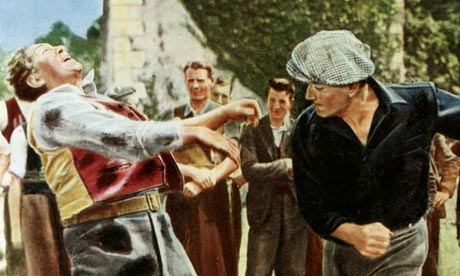
Wednesday 21st March, 1.15pm – 2.30pm
Room 257, University of Westminster, 309 Regent Street
Aisling McKeown (University of Westminster)
‘Once Upon A Time In The West: the Rural Idyll in Contemporary Irish Fiction and Film’
Abstract: In 1952, John Wayne starred in John Ford’s film The Quiet Man, set in the west of Ireland. Playing a returned Irish-American emigrant, rather than his more customary role as that potent symbol of the American west, the cowboy, Wayne cut a swathe through Ireland’s wild landscape. The film projected an image of Ireland as a rural idyll, populated by fiery yet charming natives. Contemporary film-makers and writers, unless being deliberately ironic, tend to avoid such clichéd treatment of rural Ireland. Combining discourses of tradition and modernity, their representations reflect the socio-cultural evolution of this remote location, which inspired Yeats and Synge over a century ago. This paper will trace the development of these representations and discuss the blend of mythology and realism that underpins the work of today’s writers as they address such themes as immigration, identity and belonging.
‘Big Ideas’ pub philosophy talk on the city
Tagged as London, radical philosophy, Urban

David Cunningham will be speaking in the series of ‘Big Ideas’ pub philosophy talks held at the Wheatsheaf in London on Tuesday 27th March, 8pm. The topic is: ‘Are Cities Important to Philosophy?’ And here’s the blurb:
Socrates in Athens; Kant in Konigsberg; Hegel in Jena; Russell in Oxford; Carnap in Vienna; Sartre in Paris. Cities, of course, attract cultural production of all kinds to themselves, and the great cities act as magnets for philosophers just as they do for artists, entrepreneurs and chancers. But is there something more to the relationship between philosophy and the city? Has the course of Western philosophy been influenced by its overwhelmingly urban setting?
Further details at: http://bigi.org.uk/events/cities-philosophy/
Thomson & Craighead are Being Social
Tagged as art, technology, thomson

Thomson & Craighead are part of the inaugural exhibition ‘Being Social’ in the new Furtherfield Gallery slap bang in the middle of Finsbury Park, North London where they are showing a version of ‘London Wall’. The exhibition is on already and runs until 28th April. Details here.
T&C are also showing a new projected version of ‘Flipped Clock’ and the short documentary artwork, ‘Several Interruptions’ as part of the exhibition ‘Mirror Neurons’ at the National Glass Centre in Sunderland, on until 20th May. Details here.
They’ve also completely revamped their 2001 online artwork ‘e-poltergeist’ for the Canadian journal ‘BleuOrange’, and this goes live on 20th March at 0300hrs GMT. And finally, a new artwork, ‘A live portrait of Sir Tim Berners Lee (an early warning system)’ will be part of the major new exhibition, ‘Life Online’ launching in the National Media Museum on 29th March. Further details here.


The Institute for Modern and Contemporary Culture
University of Westminster Department of English, Linguistics and Cultural Studies
32-38 Wells Street, London W1T 3UW. United Kingdom.

